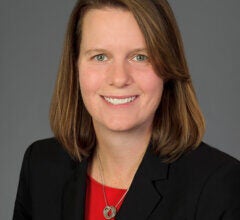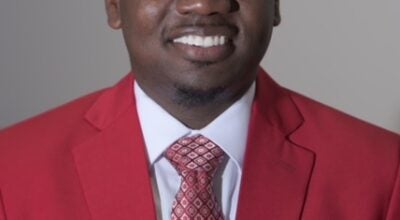Judge candidates answer questions: Part I
Published 3:00 pm Monday, April 25, 2016
Part I
By BETH ALSTON
beth.alston@americustimesrecorder.com
www.americustimesrecorder.com
AMERICUS — The Southwest Judicial Circuit Bar Association hosted a public forum in Americus recently for the three candidates for Superior Court judge, to replace Judge George Peagler, who is retiring at the end of the year.
After introducing themselves, the candidates were asked questions that were provided by the public. The candidates are Jimmie Brown from Lee County, Kevin Kwashnak from Americus, and Lewis Lamb from Lee County.
Question: What do you think is the biggest problem facing Sumter County and how do you think the judicial system can improve it?
Brown: “Here in Sumter County, and I’ve tried to keep up with the issues in every county in the circuit, I think we’ve got a drug problem that’s getting out of control. While I know it’s not unique to Sumter County, it comes hand in hand with the economic challenges we have. You see petty crimes. You’ve seen robberies in neighborhoods that you’ve not see before. … Drugs are a common denominator there and there’s not just one kind of drug defendant. You have to have a coordinated drug policy; that’s what’s really needed and that’s what I’ve kind of focused on.
“I know we’ve started a drug court here. Judge Sizemore’s been active in getting that up and running. There are different types of drug offenders. You’ve got dedicated, hard dealers and I think there’s a consensus among everybody that you’re hard on those guys when it comes to sentencing. You’ve got the chemically addicted that the current drug program here is addressing because you can’t just throw someone chemically dependent in jail and then upon release expect them to do anything other that what they were jailed for. Then you’ve got young offenders … You don’t want to ruin the life of some young kid making his first mistake; otherwise he doesn’t get to go in the military. He doesn’t get employed. … You just have to have intelligent sentencing but for the hardened dealers … I think the drug dealers don’t see them as a circuit where they fear to tread. I think they ought to.
“There are some circuits where that is the case. Judge Cato, who’s just retiring right now from the South Georgia Circuit, is known far and wide in the criminal community for how he sentences in drug cases. I think there needs to be a policy in place because when deputies go out and make an arrest, they should already know what resources are available, what they can do, whether it’s proper to take this one to jail or take that one to a rehab center.”
Brown said this is not something that costs a lot of money even though this is a poor, rural area of the state.
“We’re just talking about coordinating among agencies that are already on the public payroll. Someone from the District Attorney’s Office, someone from the Public Defender’s Office, someone from the sheriff’s department, someone from the local counseling resources and maybe from the nonprofits … a unified policy so that we have some direction.”
Kwashnak: “There are several issued facing Sumter County, several of which aren’t affected by the judiciary. I agree with Mr. Brown that one of the big issues are drugs. We need to have a system in place. We need to have a response to it, … assisting the people who are addicted and punishing those who are selling and bringing drugs into the circuit. I think we need to get organized into a fashion so that people know if they have a problem they will get help but if they are causing the problems, there will be consequences for that.”
Lamb: “Drugs are an issue that affects all six of these counties. I don’t think it’s necessarily worse in Sumter County than it is in Macon County or in Schley County or in Stewart County or Webster or Lee County. I think that those of you who are familiar with the way our courts operate have seen that there actually is a pretty coordinated program going on. … When the sheriff’s office arrests someone, what a judge might ultimately do with that case doesn’t have anything to do with how they do their job. Their job is different than the prosecutor’s job. The prosecutor’s job is different than the judge’s job. The judge’s job is different than the probation officer’s job. But I think they all work pretty well together in terms of filtering through those cases and making a determination as to folks who need to be in treatment programs, or folks who just need to have their behavior monitored.
“A lot of times we have folks who are using drugs but aren’t necessarily chemically addicted them; that’s when we use programs like pre-trial diversion programs, or drug court programs as opposed to sending someone off to a rehabilitation facility. Sometimes that happens too, but a lot of times it’s just a matter of monitoring folks to the probation office, having them drug tested … When we use programs like drug court and pre-trial diversion programs, we give folks an incentive to keep clean. We give them an incentive to follow the rules because they know are some consequences if they don’t. Folks who are manufacturing drugs, folks who are selling drugs, …
“As a prosecutor, for someone who’s selling marijuana, if it’s a first offense, even if they’re selling marijuana, I’m not recommending prison for that person … because it would be, if we got a five-year prison sentence, by the time the pardons and parole board got through with them, they’d do about four months and then they’d clock out. In the meantime, the county foots the expense for them sitting in jail … People who are repeat offenders do get prison sentences. People who are manufacturing drugs and bringing drugs in and trafficking drugs do get prison sentences. They often get long prison sentences. People who are doing that across jurisdictions, those cases get referred to the federal government for prosecution.
“So I think that there is a coordinated program but it’s an issue that’s facing society as a whole. It’s not unique to Sumter or to this circuit.”
Next time: more questions and answers.





